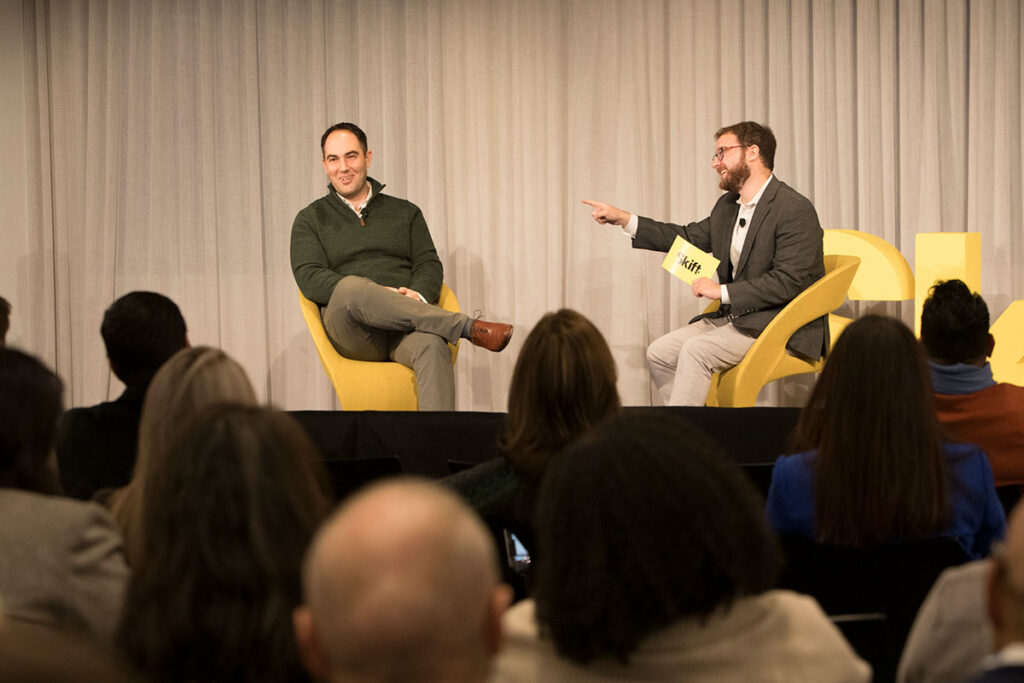
Good morning from Skift. It’s Wednesday, January 8 and here’s what you need to know about the business of travel today.
Skift hosted its annual Megatrends event in New York on Tuesday, where several prominent travel executives discussed trends poised to shape the upcoming year in travel. Altimeter Capital partner Thomas Reiner said at the event that online travel agencies and metasearch engines are in trouble due to the rise of AI-generated search, writes Travel Technology Reporter Justin Dawes.
Reiner said he believes AI assistants will be the main way people book travel, adding personal assistants will enable travelers to book a hotel, buy a flight ticket, and call an Uber, among other services. Reiner also said that traditional search engine optimization would become a thing of the past.
Listen Now
🎧 Subscribe
Apple Podcasts | Spotify | Youtube | RSS
Next, Kayak CEO Steve Hafner said he “fears” 2025 will see the first commercial agreement between an AI engine and a major travel brand, writes Executive Editor Dennis Schaal.
Hafner said at the Skift Megatrends event that such a deal would be a bit like “a dam breaking.” Hafner said he’s concerned about traditional travel sites possibly becoming a casualty of changing consumer behavior as more travelers look to social media and AI for trip planning.
Hafner also said it needs to get sorted out how AI will get commercialized in travel in terms of “who takes credit for the actual booking.”
Finally, British Airways recently announced several controversial changes to its loyalty program, including transitioning to a revenue-based system for awarding status. Airlines Editor Gordon Smith provides five lessons for companies looking to make similar changes.
As the short notice of the changes upset many travelers, Smith writes communicating controversial decisions is made more difficult if customers believe they don’t have enough time to grasp the moves. Smith adds that alienating customers who fly regularly is risky, even if they travel on less profitable tickets.

